One can readily understand why American Jews were rattled by the hostage incident at Congregation Beth Israel in Colleyville, Texas, last Saturday.
Although the four Jewish hostages escaped unharmed after 11 hours of captivity, and Muslim attacker Malik Faisal Akram was killed, the standoff left a bitter aftertaste in the mouths of Jews.
In a reflection of the climate that prevails in the United States today, The New York Times on January 18 published an opinion piece by historian Deborah Lipstadt with the alarmist headline: “It’s Scary To Be A Jew In America Today.”
American Jews have been on edge since a heavily-armed neo-Nazi stormed the Tree of Life synagogue in Pittsburg in October 2018. In an unprecedented rampage, he killed eleven congregants in the deadliest antisemitic attack in American history.
Six months after this outrage, a Chabad-affiliated synagogue in Poway, California, was targeted by a white supremacist, resulting in the death of a 60-year-old congregant and in the injury of its rabbi.
Toward the close of 2019, a kosher supermarket in Jersey City, New Jersey, was attacked by two African Americans, causing several fatalities. Around the same time, an Orthodox rabbi in Monsey, New York, was assaulted by an African American man.
These unsettling manifestations of hatred unfolded against the backdrop of a nation-wide spike in antisemitic incidents and a Unite the Right rally in Charlottesville, Virginia, in 2017 during which hundreds of white nationalists, white supremacists and neo-Nazis chanted, “Jews will not replace us.”
Understandably enough, a significant number of American Jews feel somewhat under siege. No longer are they so absolutely certain that the United States is a guaranteed safe haven for Jews and other minorities.
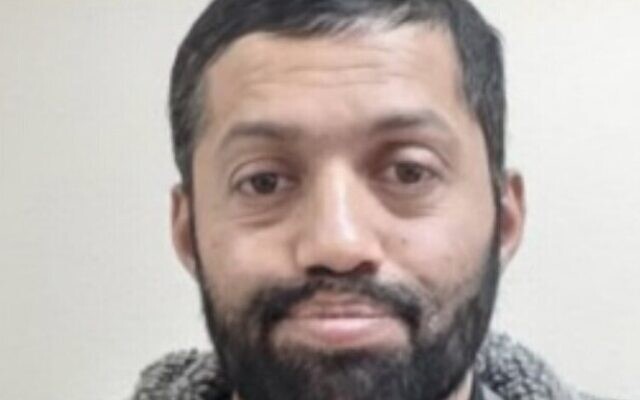
This gnawing angst and insecurity emerged yet again when Akram — a 44-year-old British national and an ethnic Pakistani from the city of Blackburn — took three worshippers and Rabbi Charlie Cytron-Walker hostage at Congregation Beth Israel on January 15.
Akram reportedly demanded the release of Aafia Siddiqui, a 49-year-old Pakistani neuroscientist with links to Al Qaeda. Arrested in 2008, convicted of terrorism, and given an 86-year sentence, she is currently being held at the Federal Medical Center, Carswell, in Fort Worth, 38 kilometres from Colleyville.
On January 16, shortly after the incident ended, U.S. President Joe Biden denounced it as “an act of terrorism.” He said he had told Attorney-General Merrick Garland that “we’re not going to tolerate this, that we have this capacity to deal with the assaults.” Biden also made a passing reference to “the antisemitism that has grown up” in the United States in the past few years.
At a news conference following the incident, the FBI agent in charge of the case, Matt DeSarno, said “the Texas hostage taker’s demands were specially focused on issues not connected to the Jewish community.”
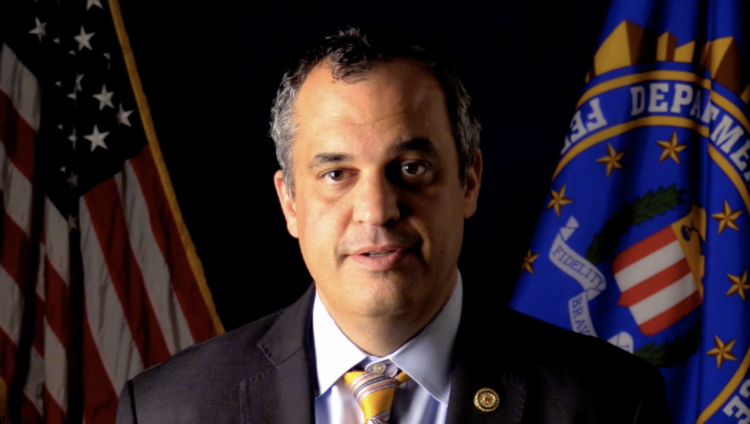
DeSarno’s comment aroused widespread indignation and derision.
Garland, a Jew, pulled no punches, saying it was “rooted in antisemitism.”
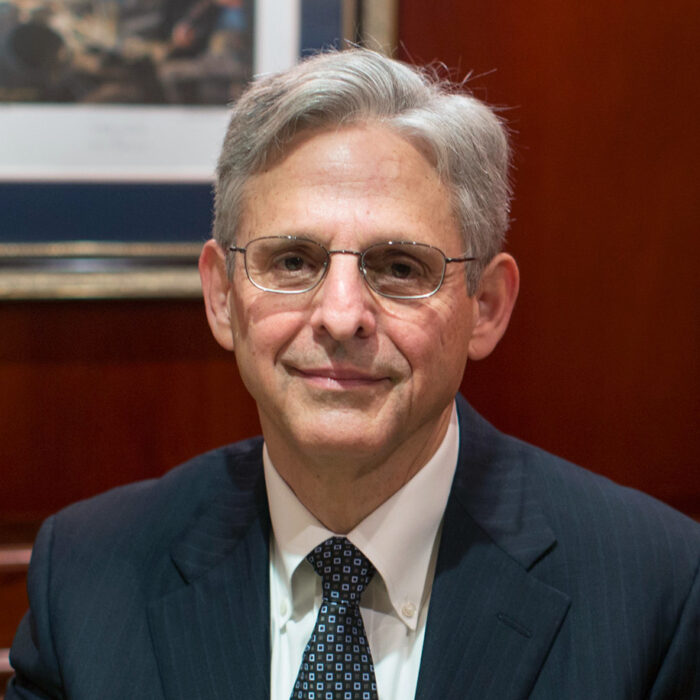
Kenneth Marcus, the founder and chairman of the Louis D. Brandeis Center for Human Rights Under Law and a former assistant U.S. secretary of education for civil rights, reached the same somber conclusion. De Sarno’s take on the incident was “symptomatic of a widespread failure (of) law enforcement to understand the problems of antisemitism and anti-Zionism,” he charged.
Roz Rothstein, the co-founder of StandWithUs, a pro-Israel organization that combats antisemitism, described DeSarno’s remark as “insulting and disappointing.”
In the face of this stinging criticism, the FBI essentially walked back DeSarno’s bland comment.
“We never lose sight of the threat extremists pose to the Jewish community and other religious, racial and ethnic groups,” the FBI stated. “This is a terrorism-related matter in which the Jewish community was targeted … Preventing acts of terrorism and violence is the number one priority of the FBI.”
The issue that needs to be answered now cries out for clarity. Why did Akram — a person with a criminal record whom Britain’s security service placed on a watchlist as a “subject of interest” in 2020 — choose a lone synagogue rather than many of the churches in the area as a platform to advocate on Siddiqui’s behalf?
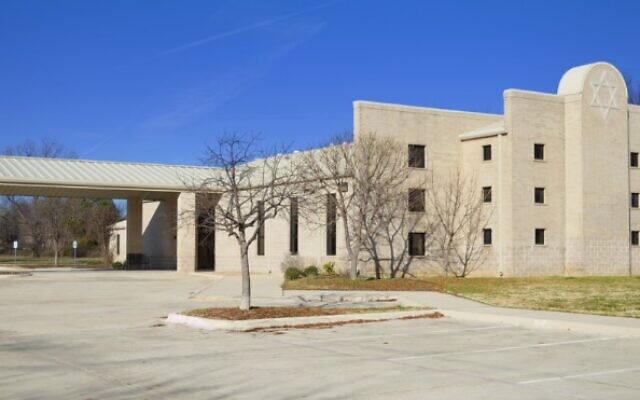
According to the latest reports, Akram’s first demand was to speak to Rabbi Angela Buchdahl of Central Synagogue in New York City. He believed she could free Siddiqui, a PhD graduate of Brandeis University whose antisemitic rants are a matter of public record.
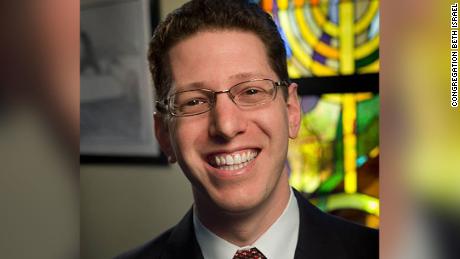
“This was somebody who literally thought that Jews control the world,” Cytron-Walker said of Akram. “He thought he could come into a synagogue, and we could get on the phone with the ‘Chief Rabbi of America’ and he would get what he needed.”
Buchdahl spoke with Akram twice, but citing security concerns, she declined to elaborate on her conversations with him.
Akram’s apparent belief that Jews are masters of the universe is an old, dangerous and pervasive antisemitic trope, forming an essential element of the Protocols of the Elders of Zion and of Nazi and neo-Nazi ideology.
His brother in Britain told the media that Akram did not hold racist or antisemitic beliefs, and that he referred to his hostages as “beautiful” Jews. He may be telling the truth, but if Cytron–Walker is to be believed, Akram was indeed an antisemite, having bought into one of the most egregious antisemitic stereotypes.
Certainly, his adulation of Siddiqui, a Pakistani originally from Karachi, spoke volumes about his warped mindset.
Siddiqui, radicalized after the September 11, 2001 Arab terrorist attacks in the United States, believed that Jews were behind 9/11 and that the U.S., Israel and India were conspiring to invade Pakistan, which has yet to recognize Israel’s existence.
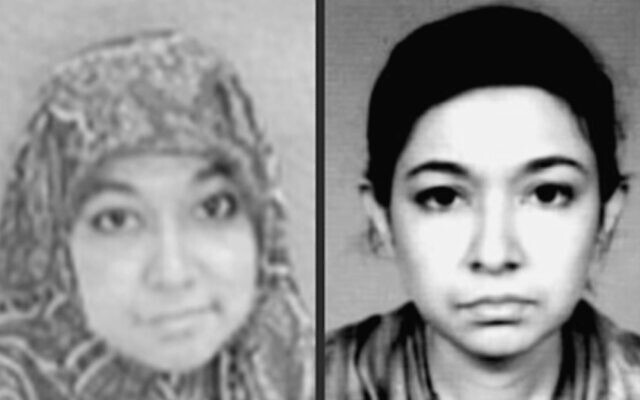
While awaiting trial on charges of attempting to kill U.S. soldiers in Afghanistan, she tried to sack her lawyers because she thought they were Jewish. Later, she demanded that members of the jury be DNA-tested to prove they were not Jewish.
After her trial, she wrote a letter to the then U.S. president, Barack Obama, in which she defamed Jews: “Study the history of the Jews. They have always back-stabbed everyone who has taken pity on them and made the fatal error of giving them shelter … This is why ‘holocausts’ keep happening to them repeatedly! If they would only learn to be grateful and change their behavior.”
Given her aversion to Jews, it is strange that she enrolled in Brandeis, a non-denominational liberal arts university founded by the Jewish community and named after Louis Brandeis, a Jewish U.S. Supreme Court judge.

Deborah Scroggins, the author of a book about Siddiqui, believes she chose Brandeis due to its academic reputation, its proximity to Boston, and its program of financial aid to students. Siddiqui’s former husband disclosed she may have selected Brandeis to “get to know” her enemy. By one estimate, 40 percent of its student body is Jewish.
If Siddiqui is perceived in the United States as an antisemitic terrorist, she is held in high regard in her native Pakistan.
Twelve years ago, Pakistani Prime Minister Yousaf Raza Gilani hailed her as a “daughter of the nation” and joined opposition leader Nawaz Sharif in calling for her release from prison. Four years ago, the current Pakistani prime minister, Imran Khan, promised he would try to bring her back home.

Since 2013, Islamic fundamentalists in Pakistan, Syria, Algeria and Afghanistan have demanded her release. In all likelihood, she will spend the rest of her days in a prison cell.
